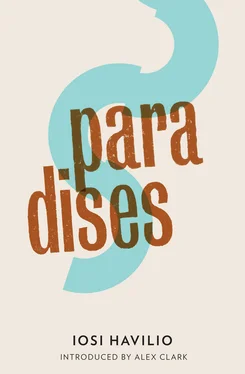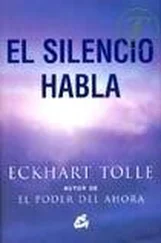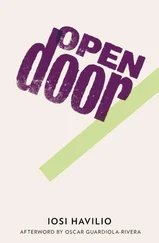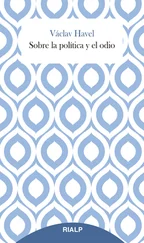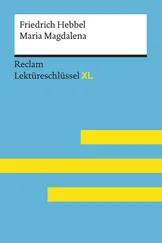Iosi Havilio - Paradises
Здесь есть возможность читать онлайн «Iosi Havilio - Paradises» весь текст электронной книги совершенно бесплатно (целиком полную версию без сокращений). В некоторых случаях можно слушать аудио, скачать через торрент в формате fb2 и присутствует краткое содержание. Год выпуска: 2013, Издательство: And Other Stories, Жанр: Современная проза, на английском языке. Описание произведения, (предисловие) а так же отзывы посетителей доступны на портале библиотеки ЛибКат.
- Название:Paradises
- Автор:
- Издательство:And Other Stories
- Жанр:
- Год:2013
- ISBN:нет данных
- Рейтинг книги:3 / 5. Голосов: 1
-
Избранное:Добавить в избранное
- Отзывы:
-
Ваша оценка:
- 60
- 1
- 2
- 3
- 4
- 5
Paradises: краткое содержание, описание и аннотация
Предлагаем к чтению аннотацию, описание, краткое содержание или предисловие (зависит от того, что написал сам автор книги «Paradises»). Если вы не нашли необходимую информацию о книге — напишите в комментариях, мы постараемся отыскать её.
is an almost perfect novel." — Albert Camus's
reimagined with a female lead in in twenty-first-century Buenos Aires.
Recently widowed, a young woman leaves the countryside for Buenos Aires with her four-year-old son where she seeks to build a new life for herself. She finds work in the zoo and moves into the human zoo of a squatted tower block at the invitation of one of its residents, to whom she acts as nurse, giving morphine injections.
Paradises — читать онлайн бесплатно полную книгу (весь текст) целиком
Ниже представлен текст книги, разбитый по страницам. Система сохранения места последней прочитанной страницы, позволяет с удобством читать онлайн бесплатно книгу «Paradises», без необходимости каждый раз заново искать на чём Вы остановились. Поставьте закладку, и сможете в любой момент перейти на страницу, на которой закончили чтение.
Интервал:
Закладка:
And now I’m here, she says. In June she managed to get a visa with a work permit and started working at the zoo. Thinking that she’s got the wrong word, I make her repeat it twice. She insists and explains: In the subtropical rainforest. I smile, laughing at the joke, but she looks at me seriously, almost offended, it’s no joke. She tries to explain what it’s all about but it gets complicated. I understand that it’s something along the lines of a roofed jungle with tropical plants, hanging bridges, some real animals, tarantulas and snakes behind glass, and others fake. Fake? Yes, made of rubber. She works on the door, checking tickets, she says it’s good work, although she doesn’t earn much. She says it with an expression of disgust. Because of the animals, because of the money.
She suddenly falls silent and turns her head to one side, avoiding my eye, as if she had spoken against her will. My plate is still almost full; I quickly swallow three spoonfuls to meet the requirements of nourishment. She stands up, lights the hob again and puts on a kettle full of water. Now she faces away from me, turns on the tap and rinses the fork and the pan she used to boil the sausages. What did I do in the country? I took care of horses, I say. For a while, neither of us utters another word, all that can be heard is the crackle of the flames under the kettle, the stream of running water, my jaws grinding a biscuit and the collisions Simón causes with his little cars at the other end of the kitchen. Before we say goodbye, the girl speaks again to tell me her name: I’m Iris.
In the dark, in this strange, damp bed, I spend several hours trying to find a position that will allow me to sleep. In my half-awake state, I can’t help thinking about the house in Open Door, which I imagine covered in water. Submerged, or floating away. I also think about Jaime, who must be freezing his arse off underground.
Four
Three days later I’m at the entrance to the zoo asking for the office and a girl dressed as an explorer points out a row of windows. Iris and Simón wait outside. I walk up, only to be sent in another direction: Human resources is the second door. I knock. A boy with freckles appears and tells me I have to go to the website and upload my CV. That’s what he says, your CV. Without really saying goodbye, he sees me off with a quick smile as he glances back into his office, beyond my line of vision. He gives the impression that something’s burning.
On the way out, a cross between Charlie Chaplin and a mime artist insists on giving Simón a balloon. Iris moves away, she doesn’t want to get involved. Assuming that he doesn’t talk, I explain with gestures that I have no money and he, exaggerating a tic at the corner of his mouth, and also in his eye, which keeps winking as if there’s a fly in it, says that it doesn’t matter. Thanks, I say, silently looking at the strongly outlined eyes. I can’t work out whether it’s a man or a woman. Iris becomes serious, frowning, and wants to know how I got on. I tell her what they told me and she touches her forehead. Ah, yes, she says, apologising for not having remembered. We say goodbye, she goes into work, we don’t really know where to go.
We make a bad job of crossing the road, too far from the pedestrian crossing, and walk into a fenced-off plaza of red stone chippings and squat bushes. I sit down on a stone bench. Nearby, two teenagers are kissing like amoebas. He is leaning over, embracing her, simultaneously taking care not to spill a tall bottle of Coca-Cola. Laughter and more kisses. Opposite, on either side, all around, is a vast scale model of the city. This landscape that is still incredible to me. I struggle to conceive of so many people, so many cars, so much everything. And yet, quickly, very quickly, I allow myself to surrender to the evidence.
Now, in front of me, a sequence of events brings me back to earth: Simón, running with the balloon, lets go of it and, wanting to get it back, trips and falls flat on his face in the shards of stone. First he looks at me, then he cries. I don’t go to his aid. He stands up by himself and comes towards me covered entirely in orange. He touches his knee, it hurts. A long scratch, superficial but long. The kind that looks impressive. And it’s impossible to tell where it ends because the red of the skinned knee mingles with the colour of the clay. I spit on my palm and pass it over the wound. Ow, ow, he jumps, it stings. It’s nothing, I say, and he curls up at my feet drawing in his legs like a wet dog.
At the bottom of the sky, or what appears to be the bottom of the sky, two flat, thin clouds are racing like greyhounds. The one on top is a few body-lengths ahead of the other, which is advancing fast and, because of the madness of the winds, in less than a minute gathers enough speed to overtake. I straighten my neck and am met with the figure of a horseman on a pedestal in the centre of the plaza. Hat and sword, galloping, a hero’s pose. But who? Belgrano, Urquiza, Güemes, San Martín run through my head, but no, this man doesn’t fit with any of the Argentinian greats of my memory, this one definitely escapes me. Impelled by intrigue, I walk the ten steps to a plaque that will enlighten me: Giuseppe Garibaldi (1807–1882). Another inscription engraved on bronze helps me picture him better:
COMBATTEREMO PER L’INDEPENDENZA,
LA PACE E LA LIBERTÀ DEI POPOLI.
Simón forgets his injury and is now entertaining himself throwing stones at the pigeons. From despair to euphoria, with nothing in between. A plaza warden, sitting on a plastic stool next to her cabin, watches us but can’t decide whether to intervene. Perhaps she’s tired and hopes I’ll do something instead of her. I don’t see the danger: the pigeons take flight and save themselves, the projectiles are landing a long way from anyone else. In the distance, the statue gives such a sense of propulsion that it seems about to gallop off into the air at any moment. Hard and flying. A song enters my head, first as a hum, then with lyrics and everything, I have no idea where it comes from.
Who ever said Garibaldi was dead?
Poom Garibaldi Poom Garibaldi
Who ever said Garibaldi was dead?
Poom Garibaldi ha ha ha
On the way back to the guesthouse we stop at an internet cafe with swing doors like a saloon from a cowboy film. The boy behind the counter, a chubby lad who looks like he’s never seen the sun, is speaking into a mobile phone and doesn’t raise his eyes immediately. Computer? Yes, I say, and he points at the first one against the window. But I don’t move, I need something else, he realises this and hangs up ill-humouredly. I have to do a CV, I say. He bites his lips, not concealing his annoyance, but his altruistic side wins over. You have to pay for CVs, he says, remember that for next time. I’ll give you one I did for a girl yesterday, use it as a template and change the details. I thank him with my best smile. With a magician’s touch, the boy moves his fingers over the keyboard, he opens and closes screens and programs, he mutters, in a trance, until he suddenly interrupts himself. That’s it, now you can enter what you want. Before turning my full attention to the computer, I pause and follow the retreating footsteps of this fat boy in his Anthrax World Tour T-shirt. I manage to read: Melbourne, Liverpool, Dublin, Barcelona. And Simón? Hidden beneath one of the tables, curled into a ball.
The CV belongs to a Nora, ten years younger than me. She has worked as an assistant in various clothes shops, in a supermarket, also as a waitress in El Caracol and as a publicist for Océano publishing house. Her hobbeys, that’s how she spells it: dancing and running. I start with the easy part. I replace Nora’s forename and surname with my own, as well as my ID number and date of birth. I put Iris’s telephone number, which I have written on a piece of paper, and the address of the Fénix. University studies, incomplete, computing and languages, blank. Under work experience I leave the bit about Océano publishing, it sounds good and seems unverifiable. There’s a spell of around three or four years when I did nothing, I didn’t work, study or anything. I invent a rural veterinary hospital in Open Door and give myself the position of assistant for a year and five months.
Читать дальшеИнтервал:
Закладка:
Похожие книги на «Paradises»
Представляем Вашему вниманию похожие книги на «Paradises» списком для выбора. Мы отобрали схожую по названию и смыслу литературу в надежде предоставить читателям больше вариантов отыскать новые, интересные, ещё непрочитанные произведения.
Обсуждение, отзывы о книге «Paradises» и просто собственные мнения читателей. Оставьте ваши комментарии, напишите, что Вы думаете о произведении, его смысле или главных героях. Укажите что конкретно понравилось, а что нет, и почему Вы так считаете.
